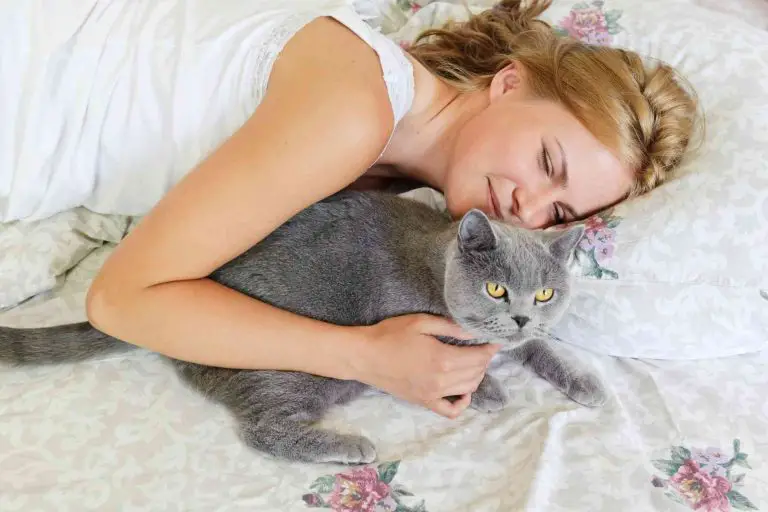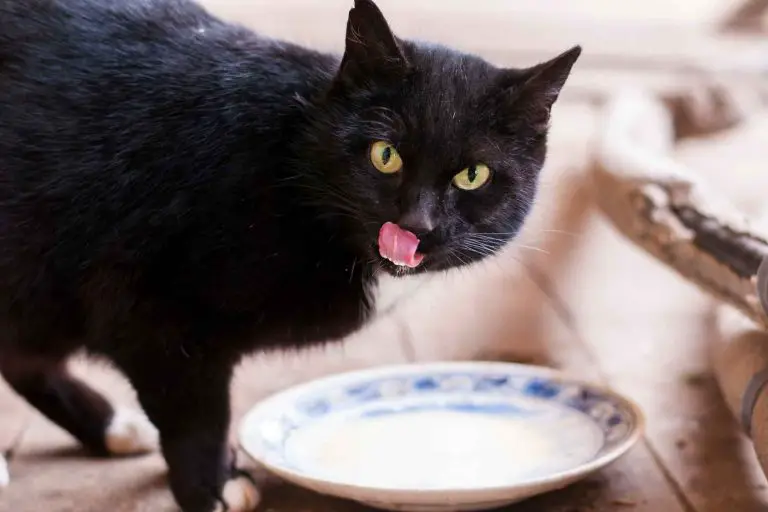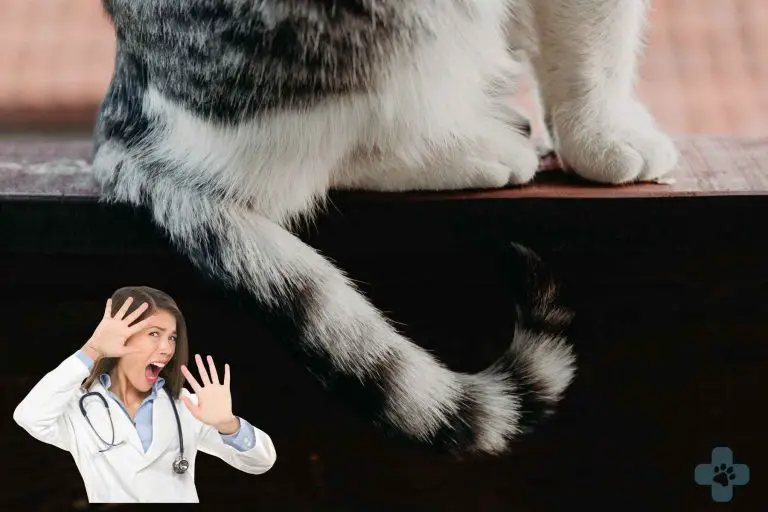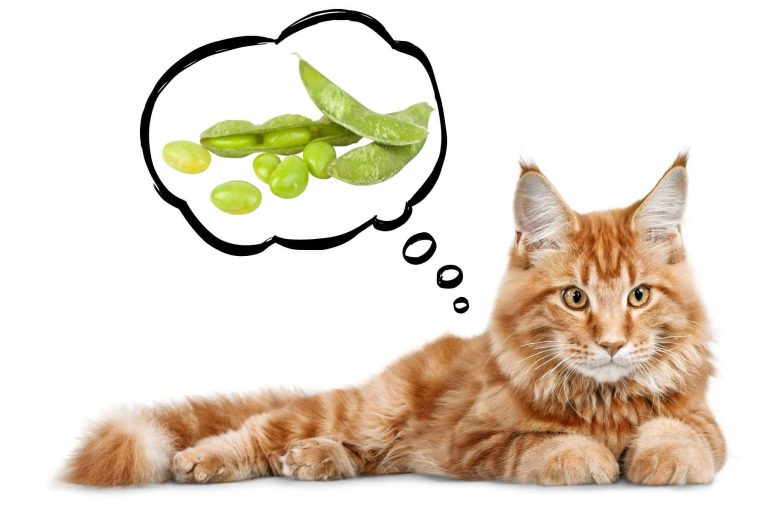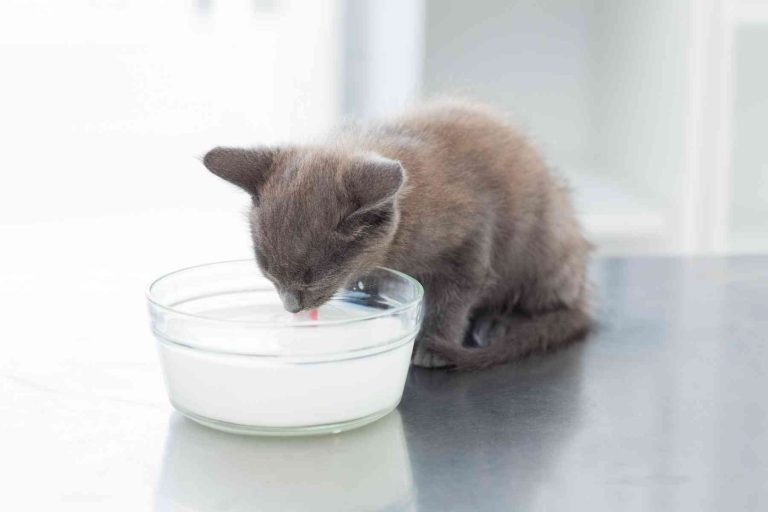Treating Cat Dandruff With Olive Oil!
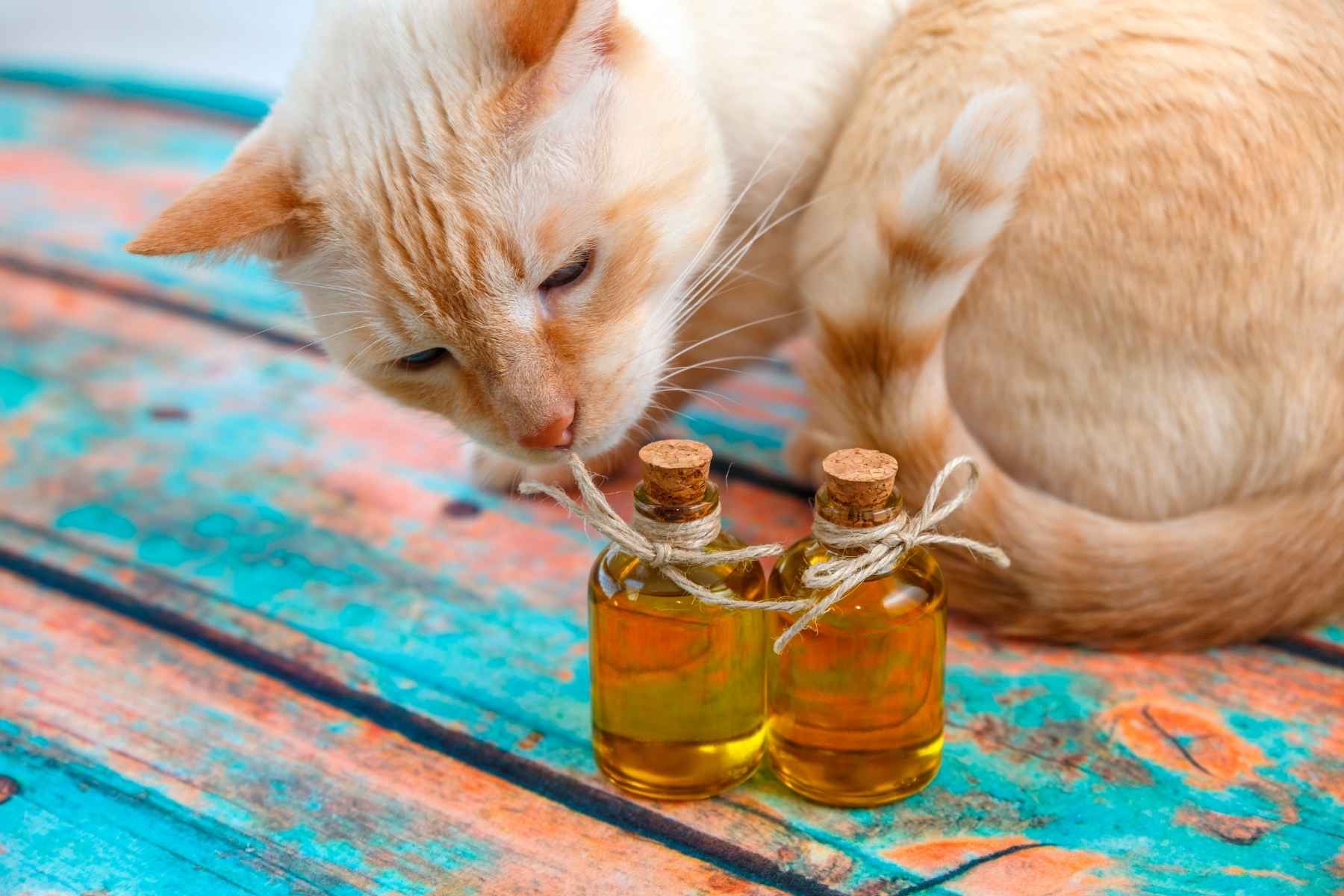
We can use olive oil to keep our brains and hearts healthy, keep our immune system functioning, and reduce inflammation. In recent years, the popularity of olive oil has continued to grow as people have started using it to improve the health of their pets.
It may sound a little fanciful that olive oil could somehow “fix” your cat’s dandruff problem, but it’s an excellent substance for treating your feline. Packed with antioxidants and antibacterial properties, olive oil helps to reduce inflammation and itchiness while providing a vitamin boost to your cat for good overall skin and fur health.
Continue reading to explore why cats get dandruff, how to treat this skin condition with olive oil, and why this substance is so beneficial to your feline’s health.
What Is Cat Dandruff?
For your skin to stay fresh and healthy, your body must shed any excess or dead skin cells, and the same is true for your fur baby.
While some shedding is normal, excessive levels of dead cells become noticeable in the hair or fur. This might not embarrass your cat how it would a human, but you’ll still want to treat any skin conditions to ensure their overall health.
Symptoms of cat dandruff include the following:
- Patches of skin that are red or irritated.
- Flaky skin.
- Scaly skin.
- Hair loss.
Why Do Cats Have Dandruff?
Many factors can contribute to cat dandruff; determining why your feline friend is shedding excess skin cells is the first step in being able to address the problem.
Your Cat Could Be Dehydrated
Dehydration is a common cause of dandruff in both humans and cats. Because felines possess a low thirst drive, it could be pretty inevitable that your cat develops dehydration leading to dandruff through the hot and harsh summer months.
Your Cat May Have A Fungal Infection
Your cat can contract a fungal infection through inhalation or ingestion, and skin infections such as ringworm are reasonably common. These parasites can come from the soil you use in your cat’s little tray in many cases.
If your cat is experiencing a fungal infection, they are likely to have dandruff, but they are pretty much guaranteed to show other symptoms as well.
Signs of tiredness, lethargy, or hair loss accompanying cat dandruff indicate that your cat could have a fungal infection. If you suspect this is the case, it’s good to book an appointment with your vet.
Your Cat Could Have An Allergy
Cats can suffer from allergies just like humans do, so if you’ve made any recent changes to your environment, such as a new floor cleaner or washing detergent, this could be the problem. When your cat develops an allergy, it can quickly develop dandruff to accompany it.
Your Cat May Be Feeling Anxious
If your cat is feeling anxious, it can lead to several symptoms, including dandruff as well as hair loss, decreased appetite, and behavioral changes.
Anxiety can come from significant changes, such as a new pet being introduced to the family, or more minor changes, like the fact that you’ve rearranged the furniture.
It Could Be The Age Of Your Cat
We know that cats aren’t big drinkers; this can cause dry and irritated skin over time. So, if your cat starts to develop dry skin as they age, don’t panic; it’s pretty normal. Assess whether their dietary needs are met and ensure they get enough water.
Do I Need To Treat My Cat’s Dandruff?
Dandruff by itself is not a huge concern, but it can often accompany other issues such as itchy or dry skin, which may be uncomfortable for your pet.
The other concern is inflammation, and if you see any signs of this, it could point to underlying health conditions in your pet.
Which Type Of Olive Oil Should I Use To Treat Cat Dandruff?
If you want to use olive oil to treat your feline for dandruff, you must use the right type. The most suitable olive oil for treating cat dandruff is extra virgin which comes directly from the olive fruit.
This is the most potent form of olive oil and possesses the most extensive array of health benefits for your pet.
Extra virgin olive oil is excellent for treating dandruff, but you can also use it to successfully remove fleas, ticks, and bugs from your cat’s skin.
How Do You Use Olive Oil For Cat Dandruff?
It’s a relatively simple process to treat your cat for dandruff using olive oil; just follow the steps below.
- Warm up a couple of teaspoons of extra virgin olive oil. Thirty seconds in the microwave should be sufficient. You want the oil to be warm but not uncomfortably hot to touch.
- Take your cat to a space where they can rub olive oil onto any furniture or soft surfaces.
- Massage the oil into the affected area of your cat’s skin and leave for twenty minutes. Use your fingers to work it directly onto the skin beneath the fur.
- Rinse the olive oil from their skin with warm water.
- Dry them with a warm towel.
- Repeat every one to three days.
Do I Have To Warm The Olive Oil Before I Apply It To My Cat’s Skin?
You don’t have to warm the olive oil beforehand, but some benefits are associated with this method. Not only does the warm liquid feel nicer on your cat’s skin, but the warmth allows the oil to attach to the skin more readily and increases the amount that can seep through.
Never boil the oil, though. If the oil is too hot when you apply it, it can cause severe damage to your cat’s skin. Test it on your own skin first and check that it’s a comfortable temperature to sit for a while.
Why Is Olive Oil Good For Treating Cat Dandruff?
Olive oil is particularly useful for treating cat dandruff as it is packed with antioxidants that keep your cat’s skin healthy and flake-free. Plus, the high levels of vitamin E help keep your feline’s fur healthy and shiny.
Monounsaturated fatty acids can heal damaged skin, plus they help to soothe any areas of inflammation. These factors reduce the amount of irritation and itchiness and ensure that your cat maintains healthy skin and fur.
What Are The Benefits Of Using Olive Oil To Treat Cat Dandruff?
Extra virgin olive oil contains antioxidants and has the qualities of being antibacterial and antimicrobial. This means that while you treat your cat’s dandruff, you also protect their skin from any infections.
In addition to applying this substance to their skin, you can add a small amount to your cat’s food to make the most of the antioxidants that help your feline ward off any chronic diseases.
Tips For Treating Cat Dandruff With Olive Oil.
As with most home remedies, there are a few tips and tricks to using olive oil for treating your cat’s dandruff.
- Make sure you use the correct type of olive oil. Extra virgin works best.
- Avoid any flavored oils, particularly ones that use spices, as they can exacerbate an irritable skin condition.
- Make sure that the product you’re using is still in date, mainly if it’s something that’s been sitting in the back of your cupboard for a while.
Are There Any Dangers Associated With Using Olive Oil To Treat Cat Dandruff?
Extra virgin olive oil possesses many health benefits and is non-toxic for your cat, so it’s an excellent natural remedy to treat several skin and health issues.
That being said, it’s always a good idea to seek advice from your vet before you embark on any new treatments for your pet. They will be able to give you the best advice.
Other Methods For Treating Cat Dandruff
Olive oil can work wonders for treating your pet’s skin; however, for increased overall health, it helps to identify and address the source of the problem, e.g., not getting enough fluids.
Dehydration
Add more water to your cat’s diet.
Try offering high water percentage foods – such as watermelon or cucumber – as a treat.
Include plenty of wet food in your cat’s diet.
Try mixing a little bit of water in with your cat’s meals.
Fungal Infection
Change the litter that you’re using in their tray.
Book an appointment with your vet as soon as possible to address your concerns.
Allergy
Figure out if there are any cleaning agents or detergents that you’ve recently swapped. Switching to milder brands can help manage your pet’s allergies and their dandruff.
Age
Check the dietary requirements of your feline and make sure they have enough water in their diet.
Anxiety
If a change to their environment causes your cat’s anxiety, reorganize things to how they were before.
However, if the change is something they need to get used to – such as a new pet – then allow them time to adjust and make the transition as smooth as possible.
For example, make sure they have their own private space to retreat away from other pets.
Final Thoughts
Cats get dandruff just like humans do. While it’s nothing to panic about, leaving flaky skin untreated can lead to skin irritation, swelling, and redness. Plus, dandruff can point out that something is wrong with your cat’s environment.
While addressing the root causes is the way to prevent this problem, olive oil is an excellent method to treat the symptoms of this condition. It’s a simple process that could alleviate your cat’s irritation and provide them with several health benefits.


